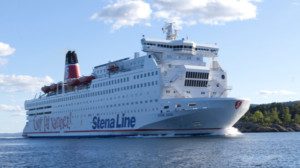Ferry Communications
Ferry communications are terrestrial or mobile networks used to transmit data and voice communications while offshore or in or near port. Ferry communications use a variety of microwave and augmented satellite equipment to form dedicated communications networks for both passengers and crew. There are approximately 251 ferries operating in the United States today, enabling the transportation of both passengers and cargo across large and small bodies of water. Ferry communications networks enable operators to communicate with other ferries offshore or command centers in port to determine docking and unloading schedules. Ferry communications networks are also paramount in providing passengers with reliable internet access while on-board. By providing a robust communications network, ferry operators ensure their passengers have the ability to post, share, stream, and download flawlessly.
Reliable wireless networks are a necessary component on modern ferry lines. Ferries, which make up a large percentage of tourist economies, require secure, high-capacity wifi connectivity for both crew members and guests. As ferries travel across bodies of water, it is integral for them to maintain connectivity. However, offshore vessels have often been placed at a disadvantage for obtaining internet access. This left offshore operators without the connectivity needed to communicate with one another. Additionally, as the popularity of ferries gained traction in cities across America, it became evident that a long-term wireless connectivity solution was needed.
Satellite was long-held as the preeminent offshore communications solution for maritime applications due to its ability to help vessels communicate with one another and also facilitate connectivity between guests on-board and friends and family on land. However, satellite was found to be expensive and largely ineffective as a ferry communications network. Microwave is considered an optimized solution for offshore communications networks. A cost effective and efficient alternative, microwave-based communications networks provided ferry operators and guests with the low latency, high throughput they required.
